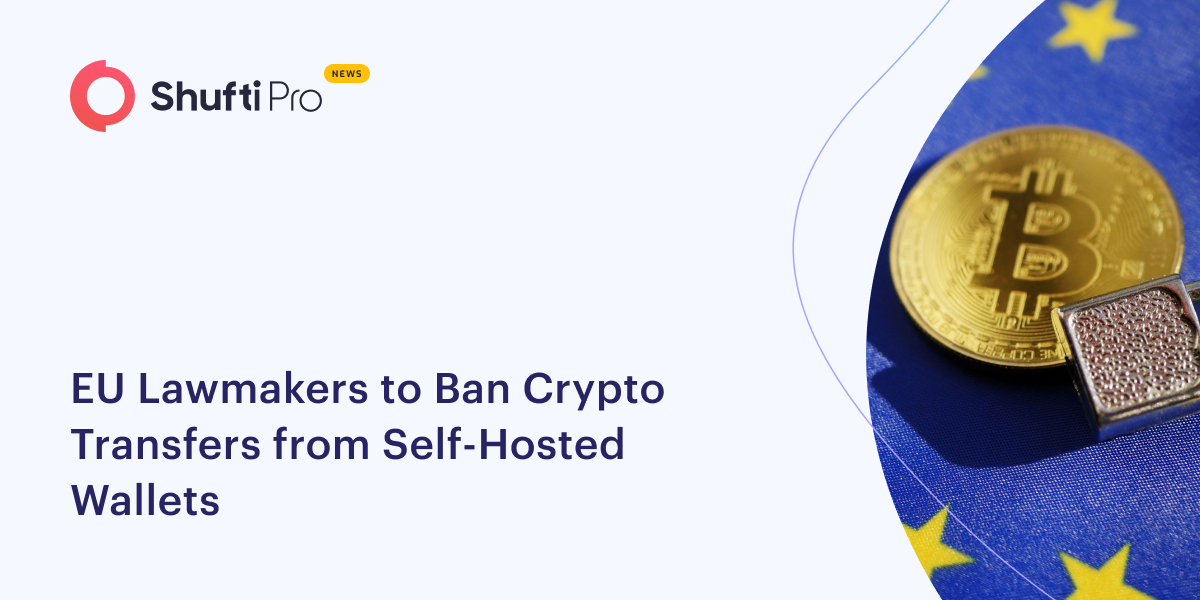EU Lawmakers to Decide Ban on Large Crypto Transfers from Self-Hosted Wallets

European Union lawmakers will vote on limiting crypto transfers from self-hosted wallets on March 28, 2023.
According to CoinDesk, large crypto-asset transfers from anonymous self-hosted wallets are potentially due to be banned by EU lawmakers. After wrangling for months about countering crimes committed using cryptocurrencies, NFTs (Non-Fungible Tokens) and the metaverse, the Civil Liberties and the European Parliament’s Economics committees will decide by voting on new AML plans on Tuesday (28 March 2023).
Traders will be forbidden from making or accepting anonymous transfers over 1000 euros (US$1080) under the current proposal from the committees. The transaction would only be allowed if a regulated crypto provider is involved in the transfer and the customer is verified via all necessary identity checks. The initial draft of the regulation was even stricter, but the text was liberalised at the March 22 internal meeting.
Crypto transfers amongst private individuals will still be allowed, such as large payments between two relatives using a regulated crypto platform. The legislation also restricts businesses from receiving over 7000 euros in cash and introduces a new EU anti-money laundering agency, the AMLA.
The completion of this new legislation requires approval from the EU Parliament and the European Council, which represents the bloc’s member states. In 2022, the Council sought to ban banks and crypto providers from dealing in privacy-enhanced coins putting the likes of Zcash, Monero and Dash on par with anonymous financial instruments such as bearer shares.
The parliament’s draft doesn’t seem to take that step, but it forbids anonymous crypto accounts and regards the use of privacy coins, tumblers, and mixers as extra factors to take into account when assessing money laundering concerns.
Crypto providers in the EU would be banned from having a correspondent relationship with any foreign provider that is unregistered or unlicenced anywhere, as per the parliament’s plan. The proposal also brings NFT platforms under the scope of money laundering rules with DAO (Decentralised Autonomous Organisations), to the extent that they are controlled by an identified person.
Suggested Read:

 Explore Now
Explore Now













